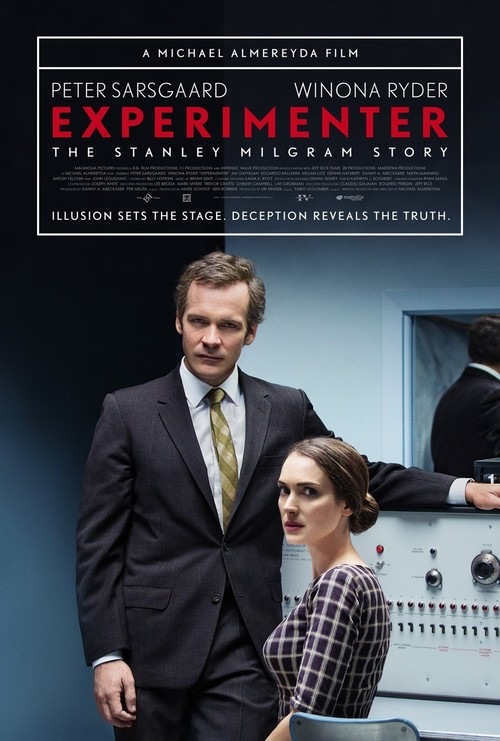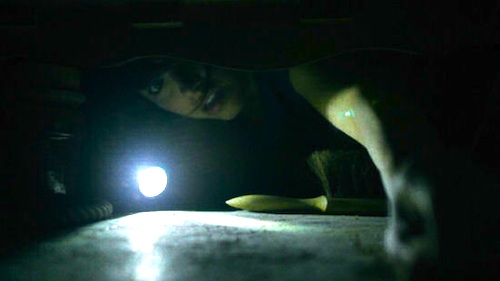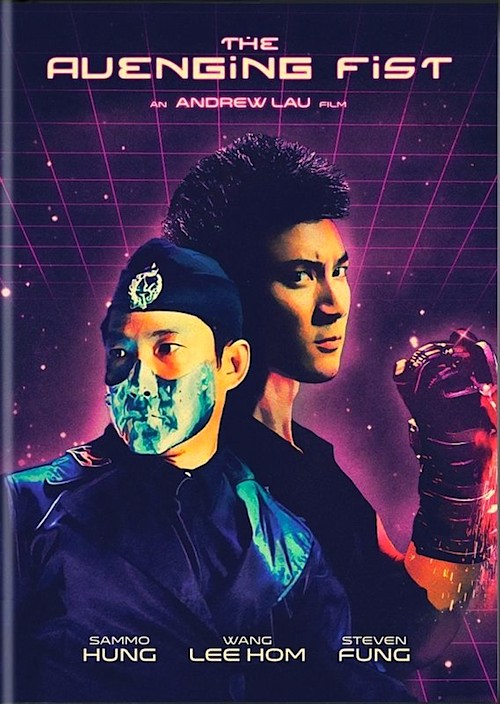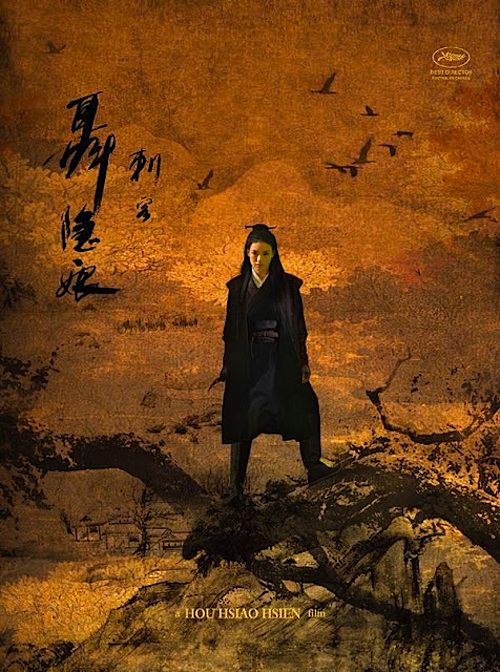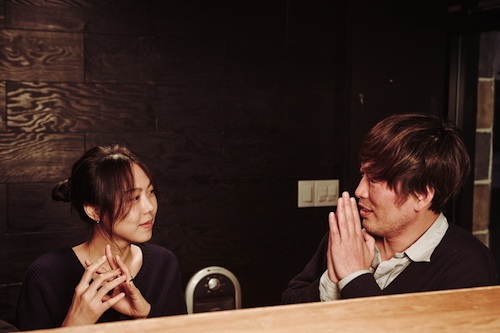By Joe Bendel. Miles Davis was like Picasso. He had highly influential, readily identifiable periods. Each of Davis’s stylistic shifts usually heralded the birth of a new trend in jazz. However, in the late 1970s, Davis was in the midst of his “silent” period. Withdrawing from public performances and recordings, his reclusive hedonistic lifestyle further fueled fans’ obsession with the Miles Davis mystique. An aspiring music writer tries to snag the interview everyone wanted, but gets pulled head-first into the chaos of the Miles Davis experience in Don Cheadle’s Miles Ahead, which premiered as the closing night selection of the 53rd New York Film Festival.
If you can’t tell it is the late 1970s from Davis’s wardrobe, you’re never going to figure it out. Earlier in the decade, Davis released some of his most commercial recordings ever with Bitches Brew and Jack Johnson (heard prominently early on), but everyone still prefers his classic stuff, like Kind of Blue and Sketches of Spain. After several years away from the studio, Davis has finally cut a new session, but he refuses to relinquish the tapes. This rather irks Columbia Records, since they paid for it, but considering how much they make off his back catalog, Davis does not feel he owes them anything.
Due in part to his heavy cocaine use, as well as his self-imposed state of isolation, Davis might be losing his grip on reality. He frequently experiences visions from his earlier life, particularly his marriage to first wife Frances Taylor (that’s her on the cover of Someday My Prince Will Come). Yet, his erratic behavior will make him even more formidable when an unscrupulous agent steals the master he has been so closely guarding. Pressing would-be journalist Dave Braden into his service, Davis lights out after the ambiguously mobbed up talent manager—and Hell follows after them.
As an actor, Cheadle channels the mannerisms, voice, and most importantly the attitude of Davis so well, it is truly eerie. In contrast to the secluded years of the 1970s, Davis was a true media presence in the 1980s, even appearing in an episode of Miami Vice and a commercial for Honda Scooters. We know exactly what he looked and sounded like around this time—and Cheadle nails it completely.
As a director and screenwriter, Cheadle’s choices will be more controversial, but they are mostly defensible. Everyone can probably agree the traditional short pants to long teeth bio-picture approach really does not fit a Miles Davis. Sort of like Danny Boyle’s Steve Jobs, Cheadle uses the flashback structure to hopscotch back and forth in order to get at the essence of the musician’s life. It works for the most part, but the central fictional narrative following madcap scramble for his mystery master tape is pretty bogus.
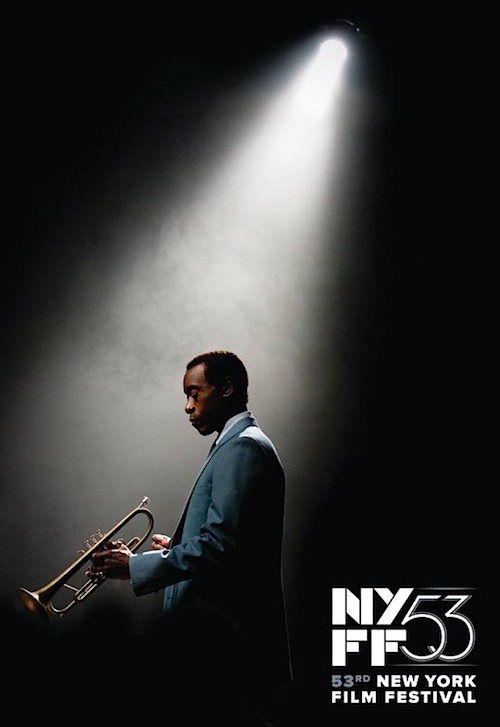 Frankly, it is impressive how well Cheadle and his co-screenwriters understand his music, yet it is somewhat frustrating how much they cover through cinematic shorthand. Most Miles fans well understand what a substantial role producer Teo Macero played in shaping his fusion sessions, but he only gets name-checked. Likewise, you just have to know Cannonball Addderley and John Coltrane are the saxophone players on the sextet sessions, but Davis’ relationship with Trane was one of the most significant associations of his career. Still, Cheadle earns major credit for a scene showing the close collaboration Davis and arranger Gil Evans (nicely played by Jeffrey Grover) on the Miles Ahead sessions. To this day, many fans do not realize the uncredited work Evans did on innumerable Miles Davis albums as an unclassifiable musical fixer.
Frankly, it is impressive how well Cheadle and his co-screenwriters understand his music, yet it is somewhat frustrating how much they cover through cinematic shorthand. Most Miles fans well understand what a substantial role producer Teo Macero played in shaping his fusion sessions, but he only gets name-checked. Likewise, you just have to know Cannonball Addderley and John Coltrane are the saxophone players on the sextet sessions, but Davis’ relationship with Trane was one of the most significant associations of his career. Still, Cheadle earns major credit for a scene showing the close collaboration Davis and arranger Gil Evans (nicely played by Jeffrey Grover) on the Miles Ahead sessions. To this day, many fans do not realize the uncredited work Evans did on innumerable Miles Davis albums as an unclassifiable musical fixer.
The choice of Robert Glasper to adapt the classic Davis music to fit within the film’s dramatic framework and to compose original tribute-ish themes with Cheadle was also inspired. Not only is Glasper comfortable with modal, fusionistic, and bop-based forms of jazz, he also has an ear open to contemporary forms of music. He is precisely the sort of musician Davis would be working with today if he were still with us.
Cheadle’s work as Davis is genuinely award-caliber and Emayatzy Corinealdi gives a strong, forceful performance as Taylor (one wonders what Cicely Tyson will make of the film, but you can’t please everyone). However, Ewan McGregor is basically dead weight as Braden, while Michael Stulhbarg makes an embarrassingly lame villain as the exploitative agent (is there any other kind?).
Regardless, Cheadle’s go-for-broke ethos is definitely cool and he shows unerring good judgment with respects to music placement. You will get the essence of Davis from the film, which is saying something. It might take fans a bit of time to chew on what is and is not incorporated into the film (no Charlie Parker, but the scandalous police assault outside the Vanguard is dramatized, with surprising restraint), but it is worth wrestling with. Recommended with largely good feelings, Miles Ahead is scheduled to open in spring 2016, following its closing night screenings at the 2015 NYFF.
LFM GRADE: B+
Posted on October 13th, 2015 at 9:56pm.
